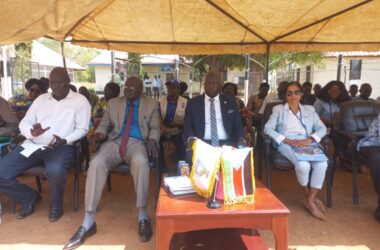By Manas James
A senior official from the Sudan People’s Liberation Movement In-Opposition (SPLM-IO) has expressed skepticism regarding the readiness to conduct free and fair elections at the end of the transitional period, next year.
Michael Bol Gatdor, the Jonglei State SPLM-IO party secretary-general, highlights lack of political will to fulfill the necessary provisions outlined in the 2018 peace deal, saying this would ensure participation of all parties.
Bol Gatdor emphasized that the SPLM-IO is in favor of elections but voiced concerns over the implementation of crucial provisions for a fair electoral process.
“These include the unification and deployment of all Necessary Unified Forces, the enactment of a permanent constitution, the conducting of a census, and the repatriation of refugees or internally displaced persons (IDPs) to their respective constituencies. Failure to implement these provisions poses a challenge to conducting elections,” he explained.
The SPLM-IO official accused President Kiir’s SPLM party of deliberately undermining the implementation of the peace deal, aiming to create an unfavorable electoral environment.
He called upon the international community to intervene by pressuring for the fulfillment of key provisions, stressing that any election excluding other parties would have grave consequences.
Adding to SPLM-Io’s concerns, Bol Deng Bol, the chairperson of the Jonglei Civil Society Network (JCSN), conveyed similar apprehensions about the situation.
He expressed fears that the year 2024 could be tumultuous if the current status quo persists.
Bol emphasized that credible elections require complete implementation of security arrangements, a permanent constitution, and the issue of repatriation, among other democratic processes.
Activist Bol asserted that failure to provide an equal playing field for all parties may lead to political turmoil, with potential boycotts or disputes over election results.
Speaking at the United Nations Security Council, Nicholas Haysom, the UN Secretary-General’s representative in South Sudan, acknowledged the popular demand for elections but raised reservations.
He cites failure to pass legislation and allocate a budget for elections, as well as reconstitute and resource key electoral institutions.
Haysom stated the UN’s commitment to assisting South Sudan in conducting its first election by building capacity and expanding civic space, among other efforts.



